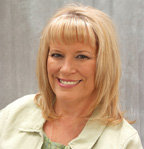
Paul Thompson, Country Club Bank
Right off the bat, Paul Thompson says, he doesn’t consider himself a Rainmaker. Too many members of his team at Country Club Bank have been responsible for its growth. But CEOs surely make the rain fall, as well, if they’re seeding the clouds for that success. And within that group, Paul Thompson does indeed fit. Since becoming president and chief executive officer in 2003, the bank’s market share, based on asset volume, has increased by nearly 75 percent, and that asset base has soared from 21st in the region up to 10th, piercing the $1 billion level.
Thompson has overseen that with a straight-talking style and a set of values he and his 10 siblings learned from his parents, Byron and the late Jeanne Thompson, as well as his Jesuit education at Rockhurst High and Creighton. Chief among those values? Faith and fortitude. Thompson’s sense of forthrightness was on display last year after Forbes Magazine, ranking its “best” banks above a certain asset threshold, excluded Country Club from the list. The bank responded by going public with a list of metrics showing how it topped the best of the best in multiple performance categories.
As Country Club Bank continues to grow, one of the chores he has is making sure his vision reaches all levels of an expanded staff. “Growth presents several challenges,” he said. “You have to respond differently, there’s more of a regulatory burden. But as you grow, you need other people, and you have those who need to take on more leadership; one person certainly can’t do it all.”
Family businesses aren’t without their structural challenges; decisions made by the alpha male can have consequences outside the office. But Thompson said the family dynamic provides Country Club with certain advantages. “There are other family banks in Kansas City, so we’re certainly not unique in that regard,” he said. “But it gives us some opportunities, it gives the family an excellent insight and perspective. A lot of the companies we bank are family-owned businesses. We put our pants on one leg at a time, just like they do.”
There’s one other element that goes hand-in-hand with being the chief executive of a large family bank. “You have to understand that it really is 24/7/365,” Thompson said. “I’m always on, I’m always thinking about our bank. I’ve seen other family businesses not do well, and that’s always a reminder that we have to give it our best efforts every day.”

Ellen Brewood, Realty Executives of Kansas City
For 27 years, Ellen Brewood worked for The Man, rising from secretary to directing operations at his government-contracting business. Made him a lot of money, too. In 1995, she decided it was time to see what she could do for herself. She earned her real-estate license, headed into the field and never looked back. This month, for the third straight year, The Wall Street Journal listed her among the nation’s most productive realty professionals as measured by transaction sides. That list recognizes her the top Kansas-side producer in the Kansas City market (No. 1 on that national list, by the way, was her Missouri-side counterpart and 2010 Rainmaker, Mike Phillips).
What got Brewood where she is? “Many years of hard work,” she says. And a fortuitous sense of timing. Long before there was a housing bubble to burst, Brewood realized that bankers really wanted to see new owners move into foreclosed properties. That was in 2000. “I saw the opportunities in foreclosures, but the market wasn’t like it is today,” she says. “I was fortunate. I still had to push myself hard in the beginning, but doors started opening, and before I knew it, I had a lot of business.”
As an independent broker, she has her own team affiliated with Realty Executives of Kansas City—and the nickname that adorns those yard signs: Sellin’ Ellen. It was spawned by a question posed when another broker came looking for her: Are you selling, Ellen? She quipped: “Yeah, that’s me, Sellin’ Ellen!” and it stuck. When she first heard agents, bankers and consumers alike tell her, “we see your signs everywhere,” she knew she had arrived.
The aspect of her work she enjoys most? “Seeing the end result,” she says. “In this business, when you keep getting assignments and when you know you’re helping people. Right now, the banks, what they want to see is owner-occupied homes. They don’t want to be holding foreclosed properties. When I can help them meet their goals, I enjoy that. And when you get an owner-occupier in that house and see they’re really happy—that’s what I really enjoy.”